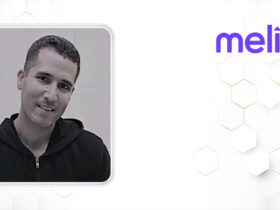Since 2004, Facebook, now Meta, has been relentlessly amassing users, mining their data and invading their privacy. But an under construction start-up, aims to challenge Meta’s digital domination by offering simplified navigation and security to users.
Also Read: H5 Data Centers Announces Acquisition of Seven Data Centers from vXchnge
SuperHub.com, acquired 26 years ago, a year before Google.com, is one of the web’s oldest continuously owned domains. The owners plan to divide the site into two easy-to-navigate arenas. The first will encompass the “realverse” where users can find the general content and activities they use regularly: non-biased social media, news outlets, e-commerce, legal online sports betting platforms like DraftKings and BarStool Sports, etc.
The second region will be a portal into the fast-growing metaverse, including gaming like Roblox and Fortnite; NTF platforms like OpenSea and Rarible; opportunities for trading in cryptocurrencies and even virtual platforms including Microsoft’s Mixed Reality efforts, such as virtual classrooms. Access to these features won’t leave users vulnerable to the aggressive data mining and lack of privacy that Facebook/Meta users experience today.
The experience at SuperHub.com will be vastly different than what users encounter on Meta’s platforms. At SuperHub.com, users will access the regions via a master gate from which they determine their own pathway, without being unknowingly steered based on sophisticated algorithms designed for profits, rather than user experience and safety.
“It’s incredible what Zuckerberg and Meta have accomplished, as unethical as it may be,” SuperHub.com owner Tal Newhart explains. “Their surveillance capabilities are so refined it’s incomprehensible to most users that something they use every day for fun and information is betraying them.
“But there’s a better model, one that doesn’t rely on sinister activities to be successful,” Newhart continues. “Profitable since 2014, DuckDuckGo.com has been an example of a search engine that fully respects privacy and lets visitors search and find what they want, not what the corporation wants them to find. It’s proof that you don’t have to be corrupt to make a profit.”


































